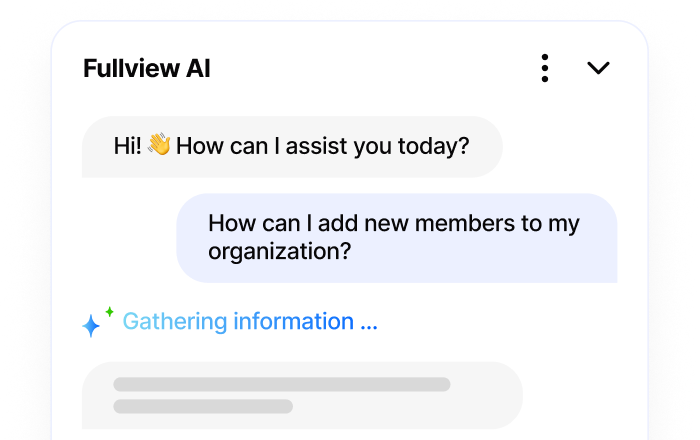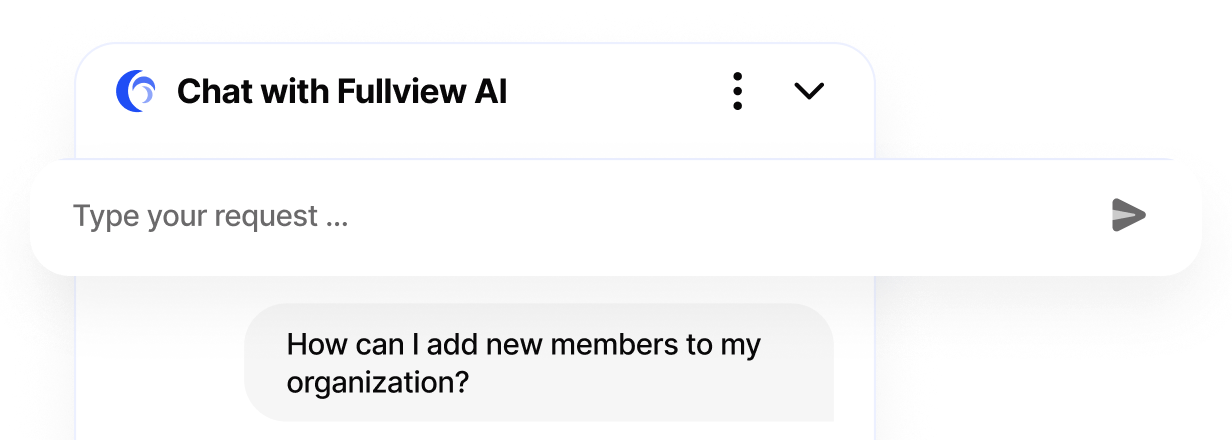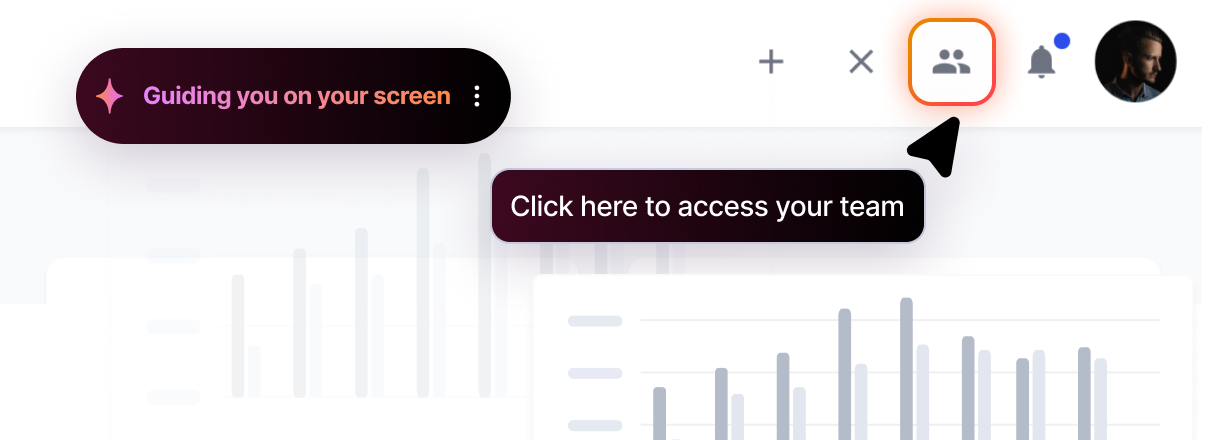Close to 90% of consumers who enjoy a positive experience with a company’s customer support services are likely to return and make another purchase. Improving customer satisfaction by directly addressing queries is the key to positively impacting retention, CLV, and your brand’s reputation.
In this article, we’ll review two quality customer support solutions providers: Customer.io vs Intercom. Both can boost your team's capabilities to handle your customers' various needs.
Customer.io vs Intercom: at a glance
Any way you look at it, you want a customer support tool that helps cultivate a positive customer experience. This is how you foster more significant business and referrals through online reviews. Let’s break down how these two offerings match up.
What is Customer.io?

The primary purpose of Customer.io is related to building and testing various email campaigns and creative messaging. However, you can leverage this technology to bolster customer support and success teams. Yes, there are marketing advantages, but having a unique messaging strategy that tracks usage, how they view a product, or segmenting different customers based on need goes a long way to streamlining your support goals. Throw in the integrations with Zapier and other third-party providers, and you have a solid system.
Customer.io features
Look at the various features of Customer.io through the lens of customer support, and you begin to see a versatile tool capable of breaking down communication into easy-to-handle categories. These features may include:
- Direct integration: the RESTful API gives you customization for updating and creating user lists and user data.
- Third-party integration: use Customer.io with Segment, mParticle, Hull, RudderStack, and Zapier.
- Robust segmentation: perfect for proactively supporting customers new to your offerings or, for example, those who purchase a recent product.
- Engagement analytics: a great feature for tracking where users are engaging and how they use your products.
Customer.io pros
Customer.io is a bit different than Intercom, as you’ll see below, but it still has numerous pros worthy of consideration for customer support and product use.
- Robust data security: Customer.io fully complies with CCPA (California Consumer Privacy Act), similar to many EU and international standards.
- Compliance: Security isn’t the only concern, as this platform follows SOC 2 Type II, HIPAA, and GDPR compliance standards.
- Access controls: For those working on larger teams, Customer.io makes it easy to add/remove access controls based on various team member needs.
- Customer history: Customer.io excels at providing in-depth guidance and historical data for every client, helping boost customer support needs by having a comprehensive view.
Customer.io cons
While the strong security and versatility of the software are appealing, there are some points you may want to consider before jumping in feet first.
- Point of program: This is not a “pure” customer support software. It is designed as an email and marketing tool that can be used in that realm for more insight into user behavior.
- No helpdesk/onboarding: Customer.io excels as a communication product, not as a way to provide a help desk and client support.
Customer.io pricing
There is no free or trial period for Customer.io. You can request a demo for the higher-grade accounts, but the beginning level is a “jump right in” situation.
- Essentials: Priced at $100/month, this grants you up to 1 million monthly email sends, segmentation, nested data, reporting, and security features.
- Premium: Starting at $1,000/month, you get a massive boost in email sends and bring in more capabilities like HIPAA compliance, chat support, 90-day onboarding, and custom API calls.
- Enterprise: You’ll have to contact the team for a quote, but expect all the benefits of the other programs, including migration and a dedicated customer success manager.
Customer.io user reviews
On G2, Customer.io has a 4.4 out of 5-star rating with over 257 reviews. Users enjoy the “marketing automation tool” and like how “Customer.io helped increase week-over-week retention.” Others report that the “technical requirements might pose a slight learning curve.”
Customer.io use cases
In most cases, you hear about Customer.io being used for marketing and sales. However, considering the massive potential for email sends through the pricing plan, it is easy to see how you can generate a FAQ or automated customer support system through the platform. With customers like Buffer, IFTTT, and IMAX, many companies are trying to leverage the program.
What is Intercom?

In the Customer.io vs Intercom arena, this tool differentiates itself starkly, considering Intercom is meant more for support than marketing. Intercom is positioned as a communication platform used by some of the top tech names in the industry. The product aims to solve customer issues quickly to reduce customer churn and improve workload balancing. This is achieved through chatbots and other communication improvements.
Intercom features
Again, Intercom serves a different purpose, so the feature reflects a mission more aligned with general customer support.
- Fullview: Unlike Customer.io, Intercom has a Fullview integration for cobrowsing calls and session replays, where agents can initiate screen control calls with users live in their product and watch recordings of user sessions in their app straight from Intercom.
- Chatbots: A significant advantage of Intercom is the advanced chatbots that will “learn” as they address various customer needs.
- Reporting: Get quality insights into how customers interact with your support touchpoints to improve overall satisfaction levels.
- Integrations: You can use Intercom with popular products like Zendesk and Zapier, as well as platforms like Facebook, Instagram, and Google Meet.
Intercom pros
- Fullview Integration: Intercom supports Fullview, allowing agents to initiate one-click screen control sessions without downloading additional software onto a target client’s device.
- Versatility: Intercom is a versatile platform with many features. It’s used by companies across all sections: SaaS, eCommerce, online hospitality, you name it, Intercom’s probably right for the job.
- Customization: The various features can be customized to fit your unique brand and customer needs.
- Solid knowledge base: You can host your knowledge base on Intercom, which is an essential part of offering your customers self-service options when they run into an issue.
Intercom cons
Like Customer.io, the price tag on Intercom can get high if you are servicing a large customer base. Other points to consider before signing up include:
- User interface: There are reports of the UI being complex and requiring more technical skill.
- Restricted deployments: You can only deploy Intercom on cloud, SaaS, and web-based apps.
- Lack of price flexibility: Like Customer.io, no free plans are available for Intercom.
Intercom pricing
- Starter plan: Intercom has a starter plan for $74/month. This includes a shared inbox, ticketing, help center, and an AI assistant.
- Pro & Premium plans: Every other plan is customized to fit the business. They scale the workload, ticketing, and inboxes based on need. The only real difference is that Premium includes custom analytics and reporting via a live dashboard.
Intercom user reviews
On G2, Intercom has a 4.5 out of 5-star rating from 2,877 reviews. Customers love how intuitive Intercom is and how comprehensive the feature set is. However, users have noted that Intercom is pricey, that it lacks account management and billing support, and that basic support features (like SLAs) are behind a paywall.
Intercom use cases
This communication support platform is targeted toward larger organizations. SMEs can use it, but with so many features, you’d almost be missing out on the full capability of the chatbots, help desk, proactive knowledge base, and integrated AI assistants. It’s also pricier than some of its competitors. Seeing how the product has clients like Udemy and Microsoft, it makes sense to leverage it for enterprise-level businesses.
Customer.io vs Intercom: the main differences
The most apparent difference between the two products is how they approach customer support. Customer.io is more of a communication tool for email management, while Intercom provides comprehensive support through chatbots, knowledge base generation, and more. Other differences include:
- Intercom lacks a targeted marketing purpose like Customer.io has, which is fine if you are looking for a customer support solution rather than a sales-focused product.
- Intercom has a lower starting point for pricing that allows you plenty of features to get used to the product, while Customer.io gets expensive quickly, especially if you’re not using that many email sends.
- Intercom has hundreds of custom-build integrations — from cobrowsing, to session replays, to metric trackers, and more — that Customer.io lacks.
- While Customer.io has fantastic customer segmentation and individual user data, you don’t get the ticketing or help desk features like you do with Intercom.
- Customer.io has a simplified workflow builder that is a benefit if you’re trying to build communication silos and funnels for clients.
- While both support web-based apps and integrations, Intercom also works with iPhone and Android apps for businesses.
- Intercom is staying ahead of the curve by using AI and ML learning in its chatbots and knowledge-based support systems.
Conclusion
As far as customer support is concerned, you want the solution that best addresses the unique needs of your target audience. A smaller company working with activity tracking for product usage or customer satisfaction may wish to go with Customer.io. This tool is good for e-commerce and anyone hoping to combine customer support messaging with marketing tools.
If your goal aligns more with comprehensive customer support through chatbots, help desk integrations, and strong knowledge base additions, you should choose Intercom.
Sources used:
- Salesforce – Customer Support
- Customer.io Home Page
- G2 – Customer.io review
- Intercom Home Page
- G2 – Intercom review
Sources last checked on date: 13-Nov-2023


.png)





.webp)
